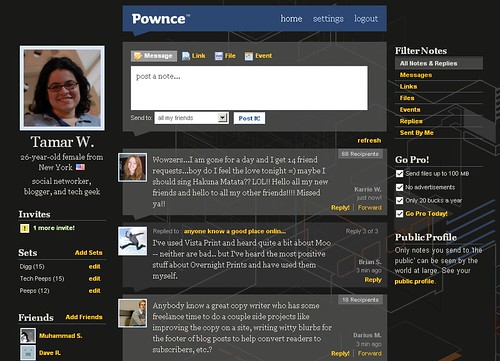Social media marketing can be very effective if done the right way, but if it backfires, the fallout can be pretty undesirable. Such was the case for this Digg story, which compared multiple web hosting companies and watched as these hosts handled the traffic spikes that resulted from the Digg effect.
Note how I bolded a specific term: web hosting. Digg is the social media network of tech geeks, and the Digg statistics should not be too surprising: 39% of Diggers publish their own blog. That means that 39% of Digg’s 1million+ members have considered web hosting, and the winner of the most reliable web host was a company that … apparently was pulled out of thin air.
A few weeks later, a surprising blog post was published that outed the marketing firm and hosting company that sponsored the particular study. It turned out, with investigation, that the “experiment” conducted was not apparently legitimate. One of the non-convinced individuals who found the Digg story took the liberty to look further into this company, Burton Hosting, and the study. Even I could have looked further. In my past positions as a web hosting administrator, I’ve heard of no-name hosting firms, in addition to the obvious well known hosts such as Rackspace, midPhase, MediaTemple, 1&1, HostPC, KnownHost, LiquidWeb, BlueHost, DreamHost… but where and who the hell is Burton Hosting, and what the heck made it perform better than highly reputable hosts that Burton was compared to in the study?
And it turned out that the whole thing was a viral marketing sham, too, which was discovered by numerous Digg members.
The issue at hand is not the fact that the company was virtually unknown. There were far more important issues that needed to be dealt with first. You can’t throw a kitten in a cage full of tigers without getting hurt. You can’t take your first driving class on the highway without learning how to drive on local streets beforehand. People should know who you are, or else you’re going to raise eyebrows.
Brand awareness is important, especially when it comes to a web hosting firm that was advertised on a multitude of technology websites.
Next time you proceed in a social media marketing campaign, follow some ideas and steps:
- Know your market. Study the demographics and know who will be researching your products.
- Know your social media source’s demographics. Digg is predominantly full of young male technology enthusiasts, whereas Netscape is more political in nature.
- Learn who your competitors are. Find out where they are advertising their products.
- Seek out communities that address the needs that your company also addresses. In web hosting, there are hundreds of different forums and sites. Get acquainted with them and with their customers.
- Let the community know who you are. Introduce yourself, engage in the community, and let them learn about your brand.
Your ultimate goal is to let word of mouth marketing work the right way for you and not against you.The best thing you can do is work with your client to understand the competition and their avenues of advertising. Jump in on those avenues too, and subtly introduce yourself and your offerings. What’s your unique selling point? Why should people want to work with you? Start off being generous: offer incentives to your earliest adopters. (Free hosting for 2 months? Sure!) But don’t jump into a 12 foot pool without learning how to swim first.
This social media gaffe is not the first one that has been discovered, nor will it be the last. People will continue to use social media for their gain. I wouldn’t fault anyone for that. However, the important thing is to have a solid experiment — you need to address the possible loopholes in your experiment. You need to have a thoroughly compelling social piece.
Those who engage in social media have an inherent thirst for interesting information. They seek information that satisfies some type of curiosity. When it comes down to it, there is absolutely nothing wrong with engaging in such a way with any social community as long as you have the intentions of the community at heart. Don’t fool them, or they’ll end up fooling you.







Excellent piece Tamar! What’s truly troubling is that the Virante marketing people behind this supposedly know quite a bit about how the social media networks work. I suppose that’s how they were able to fool us for so long. Your suggestions are great for newcomers to the social media field, but what do you do when experienced users try to use their expertise to take advantage of the system?
Devindra, the experienced users (the real experts) will use their expertise to take advantage of the system–and they will take advantage of the system. Those who aren’t the real experts won’t have done their homework and address all the possible loopholes: they’ll cross their Ts and dot their Is.
Another great post, Tamar!
Great piece Tamar! To your point Bill: indeed we should always assume that some experts will take advantage of their expertise, it is human nature. The key here is making the mechanics of the social networks transparent. From looking at the software development world: an open source product can benefit from ongoing enhanced security. For example: the apache server, since its code is open any attacker can analyze it, search for loopholes and devise an attack. Fortunately, it also allows the developers to do the same and once a new vulnerability is found, the experts can fix it in a timely fashion. Social networks like Digg are “open source??? in nature.
I mean, the Digg story was submitted by a certain “russvirante”… how obvious can you get? But at the end of the day Burton got the exposure it was hoping for, even though it was not entirely positive.